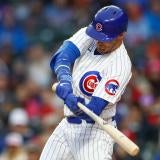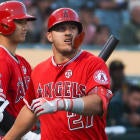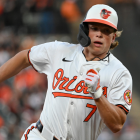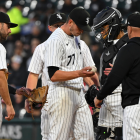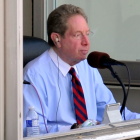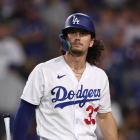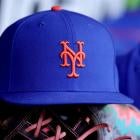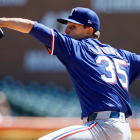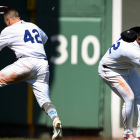We knew that the 2020 MLB season would be unlike any other we've ever seen. We just didn't know all the ways it would be different. And we still don't. But now that most every player has reported, teams are back to practicing, and the intake and testing process is better understood (albeit much maligned), we can make some inferences that we simply couldn't just a week ago.
I've compiled some of my thoughts on how this may impact the Fantasy season below:
Get used to not knowing much. Teams need a player's permission before revealing he has tested positive for COVID-19 — or any absence related to COVID-19, actually — which has led to several instances in which teams just haven't commented on a player's absence. But it's unfair to assume too much, as we all learned with Aaron Nola, whose unexplained absence from camp turned out to be brief and due merely to contact tracing.
Even when a positive COVID-19 test is made known, it presents a completely unknowable timetable. Most of the players who've tested positive have been asymptomatic, which is of course good news on a human level, but players who feel healthy are motivated to turn around two negative tests as quickly as possible, as we're seeing with Joey Gallo and Jesus Luzardo:
Joey Gallo tested negative for COVID-19 today via nasal swab at private lab in Dallas. Must test negative again in 24 hours to be cleared to return to field. Nasal swabs have twice been negative, but there was positive saliva test by MLB Lab inbetween. More protocol confusion
— Evan Grant (@Evan_P_Grant) July 7, 2020
Jesús Luzardo tells me, “I’m feeling good, just ready to get going once I get 2 negatives; praying for it to be soon.”
— Susan Slusser (@susanslusser) July 7, 2020
There was initially some confusion over whether a positive test required a 14-day quarantine, but no, a player just has to be symptom-free for 72 hours and then test negative twice in a 24-hour span. It may not be erring on the side of caution, but it is a nod to sensibility. False positives will occasionally happen, and the amount of virus detected can also vary from sample to sample.
And then, of course, there are the players who do have symptoms. Freddie Freeman had a wide range of symptoms over July 4 weekend but is said to be feeling better now. Does it mean he's just a couple positive tests away from returning, or is he at the start of a lengthier recovery process? Scott Kingery, who first felt symptoms on June 11, said he needed the better part of a month to feel better.
"I felt like I laid on the couch for three weeks without moving," he told MLB.com. "That's a huge part of the season, so you don't want to get it."
Now, it's possible Kingery's experience was less than typical, but the point is the illness can vary so widely from person to person that it's unfair to set expectations for anyone.
This first round of intake will presumably reveal the biggest influx of cases that we'll see all season. It's scary the way the names have piled up over the past few days and tempting to think, "Oh, it's already started, and they've only just arrived," but understand that most players weren't abiding to the same standards on their own that they are now. There weren't concrete policies in place. There weren't bands of cohorts around to enforce them.
It's true that in between games, players can come and go as they please (unlike in the NBA, which has created more of a bubble scenario), but between the policies being reinforced every time they're at the stadium and the solidarity that naturally develops from being part of a team, I'm imagining the buy-in will be fairly widespread. This tweet would certainly suggest so:
Andrew Heaney said the Angels have agreed as a group to not go out to restaurants, go to bars or attend large gatherings this year. Everyone will wear a mask whenever not at home, their car or the ballpark. Said they were “common sense” precautions that should be done anyway.
— Fabian Ardaya (@FabianArdaya) July 8, 2020
Of course, it all changes if there's an outbreak within a team, and the first round of testing hasn't inspired much confidence in its ability to prevent one. Maybe it was just bad timing with the holiday weekend or the natural growing pains for a process that was sure to require some streamlining, but some teams had to wait so long for the results of their intake tests that they had to cancel full days of practice. That's bad enough now, when they have limited time to ramp up for the season, but would they be able or willing to exercise the same abundance of caution and cancel actual games if test results are similarly delayed in-season? I have my doubts.
And how quickly should we expect test results to be turned around anyway? They're actually being shipped to Utah, with the possibility of a second lab opening at some point, so the teams that were hearing back the soonest still had to wait 2-3 days. It suggests that if a player has to go through intake again — like if he's leaving the team for an extended period, perhaps for the birth of a child — his absence could be prolonged in that way.
It's notable because Mike Trout is one of the many players expecting a child this season, and with those extra days, it's fair to assume he'll miss about a week of action for it. In a 9 1/2-week season, that's significant enough to move him behind some of the other super studs found in Round 1, and I've done exactly that. Zack Wheeler, whose wife is due right around opening day, has talked about maybe missing two whole starts for it, which would be easy enough to overlook in a 162-game season. Not in a 60-gamer.
In-season testing figures to play out differently from the initial round of testing, as Chris Towers recently noted on the Fantasy Baseball Today podcast, because we don't know the exact point when one of these earliest positive cases actually contracted the virus. The player could be a week into it already. We'll have a better idea when everyone's at the same starting point, with several negative tests leading up to a positive test, so if the turnaround seems especially quick for some in these earliest days, you shouldn't proceed as if it'll be the norm.
Bottom line is that you'll need to be prepared to lose any player at any moment, perhaps without a concrete explanation and certainly without a concrete timetable. That's just the reality of Fantasy Baseball this year. You could make the case it's the nature of injuries more generally, but these absences will be in addition to the usual injuries, and they will be less predictable overall and largely shrouded in mystery. Your league should consider expanding its IL capacity in response, perhaps to as many as five slots, and you'll want to prioritize depth in a way you might not normally. Shallower leagues will still have ample waiver wires to draw from, but in deeper leagues, you might want to consider securing some of your starters' backups, if you can't do any better.
You will lose players, possibly at the most inconvenient times, so if you intend to play Fantasy Baseball this year, you'll need to embrace the challenge of that new variable and not let it dispirit you.








